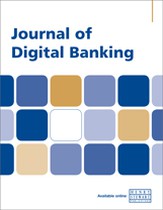PSD2 Secure Customer Authentication and customer experience: Ensuring a positive impact
Abstract
In this paper the authors describe the current diverging views on how to comply with PSD2 Secure Customer Authentication (SCA) requirements for card-not-present (CNP) transactions that are due to kick in come December 2020. Many parties argue the focus should be on the six possible exemptions to SCA to avoid, as much as possible, having to apply SCA and thus ensure smooth customer experience. The authors, however, referencing good experiences with that in The Netherlands, argue that the focus should instead be on making SCA itself smooth and seamless. Leveraging mobile banking apps and the nascent Secure Remote Commerce (SRC) standard, the cards industry can copy what is already commonplace in the Netherlands. That way a universally smooth experience can be created, and investments can be focused on providing seamless SCA rather than spreading it too thinly across many exemptions, which will not solve the issue in many instances anyway.
The full article is available to subscribers to the journal.
Author's Biography
Roxana Sacaleanu is a Strong Customer Authentication expert, working as a Global Product Manager within the ING Payments Centre. She started her career in banking in 2006 in ING Bank Romania and developed her expertise in a variety of areas and roles within the retail banking space, from operations and process optimisation to product management and innovation. She moved to Amsterdam in 2016, accepting the challenge of a global role in the dynamic area of payments, where the Revised Directive on Payment Services (PSD2) is changing the landscape.
Eric Tak is a payments executive with 30 years of international payments experience in banking, management consulting and payment scheme management. In his current role as Global Head of the ING Payments Centre, he is responsible for the group-wide payment strategy and road map as well as the execution of the global programmes resulting from this.
